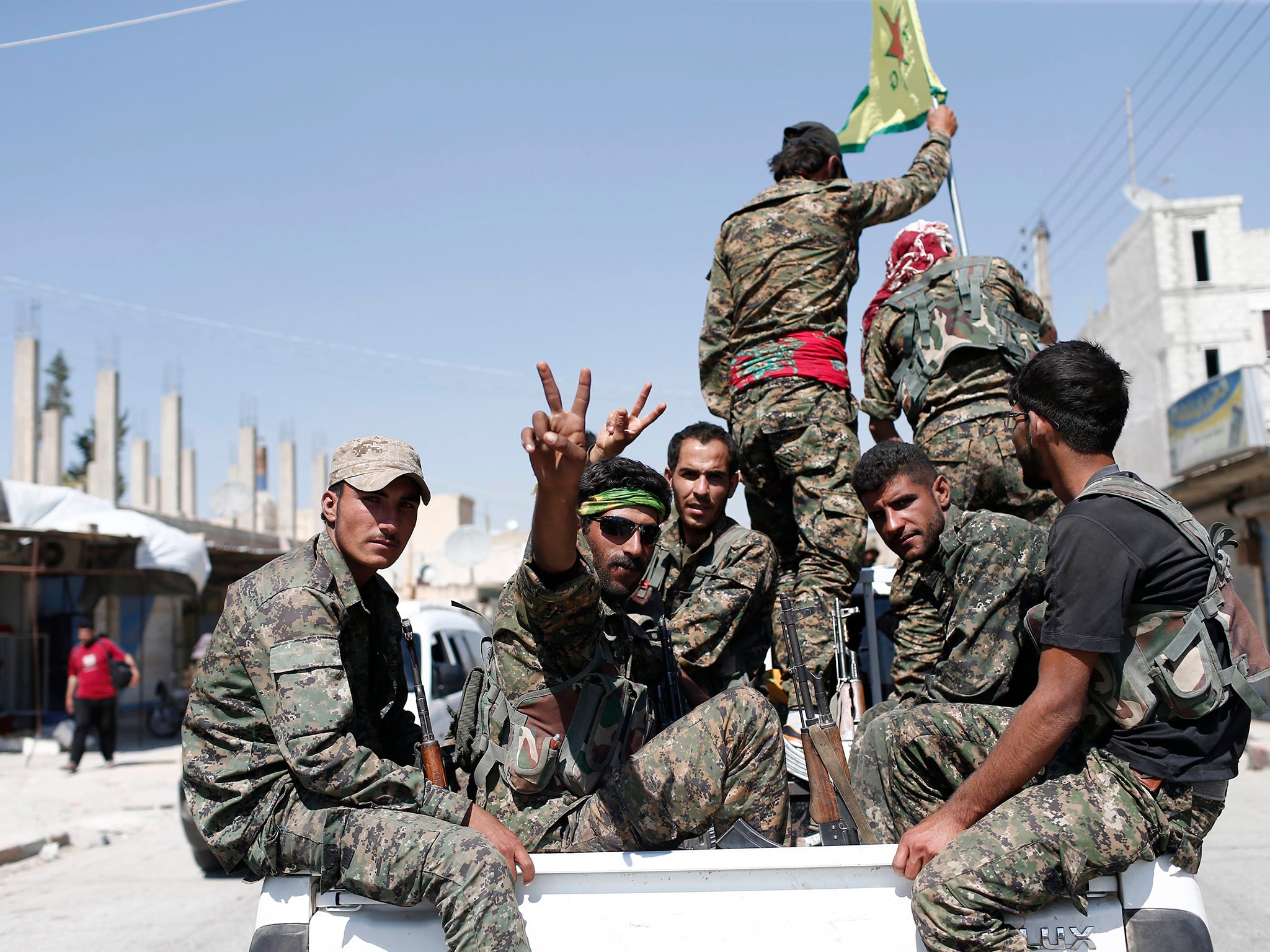Clashes between Kurdish and Turkish forces in Syria threaten to derail fight against Isis
US struggles to balance interests of Nato ally and Kurdish fighters it is relying on to retake Raqqa as diplomatic fallout grows

Turkish President Recep Tayyip Erdogan has said he will not stand for a “terror corridor” on his country’s border with Syria as growing tensions between Turkey and Syrian Kurdish forces threaten to disrupt the US-backed operation to retake Raqqa from Isis.
At least 20 Kurdish soldiers were killed in Turkish air strikes on 25 April targeting Yazidi Kurdistan Worker’s Party (PKK) allied sites in Sinjar in Iraq, and the Kurdish Syrian People’s Protection Units (YPG) in northeast Syria.
Since then the YPG and Turkish forces have exchanged mortar fire in the border region, and Kurdish Syrian groups have reported at least ten other incidents they claim are Turkish.

Turkey considers the Kurdistan Worker’s Party (PKK) separatist movement and its franchises in Syria and Iraq – US allies – to be terrorist organisations.
The hostility between the Turkish state and YPG has long complicated the US’s policy in Syria’s civil war. Turkey is a Nato ally which alongside the US supports Sunni rebels against President Bashar al-Assad, but has sworn to defeat the YPG, which the US sees as the only ground force effective at fighting Isis.
The mostly Kurdish Syrian Democratic Forces (SDF) is currently gearing up for an assault on the de facto Isis capital of Raqqa – which the YPJ (Womens Protection Units) has threatened to pull out of if the US does not take “concrete” action on what they say were the illegal strikes earlier this week.
While the US expressed “deep concern” over the attacks, for which the Pentagon said they only received an hour’s advance notice, the reaction has served only to further anger both the Kurds and Turkey. Kurdish forces do not think the US has gone far enough in condemning the strikes, while Turkey has reiterated that US support for Kurdish militias is damaging for Washington-Ankara relations.
“If the USA or coalition or the US [State department] can only say, ‘We are concerned or we are unhappy’ [about the Turkish air strikes] then we will not accept this. It means they accept what was done to us,” YPJ spokesperson Nesrin Abdullah said in a statement on Wednesday.
“Until now we have been in a joint struggle with the coalition against Isis terror. We are still involved in that struggle. [But] our people are expecting a response from us... If the coalition does not show a concrete reaction then we will withdraw our forces from Raqqa. They [the US coalition] need to convince our people. We are not anyone’s stick to beat their enemies with.”
Operation Wrath of Euphrates to retake Raqqa is designed to dovetail with Operation Inherent Resolve in neighbouring Iraq, which has almost succeeded in clearing the city of Mosul of Isis fighters.
The jihadi group has lost almost all its territory thanks mostly to Iraqi Kurdish peshmerga and YPG ground operations backed by intense US-led coalition bombing.
Turkey has tried to wrest the US away from reliance on SDF forces, offering 10,000 of its own Turkish-trained local fighters in the fight for Raqqa.
The latest attacks on Kurdish targets are widely thought to be an effort to force the YPG to divert troops from Raqqa to defend its interests elsewhere.
Join our commenting forum
Join thought-provoking conversations, follow other Independent readers and see their replies
Comments
Bookmark popover
Removed from bookmarks